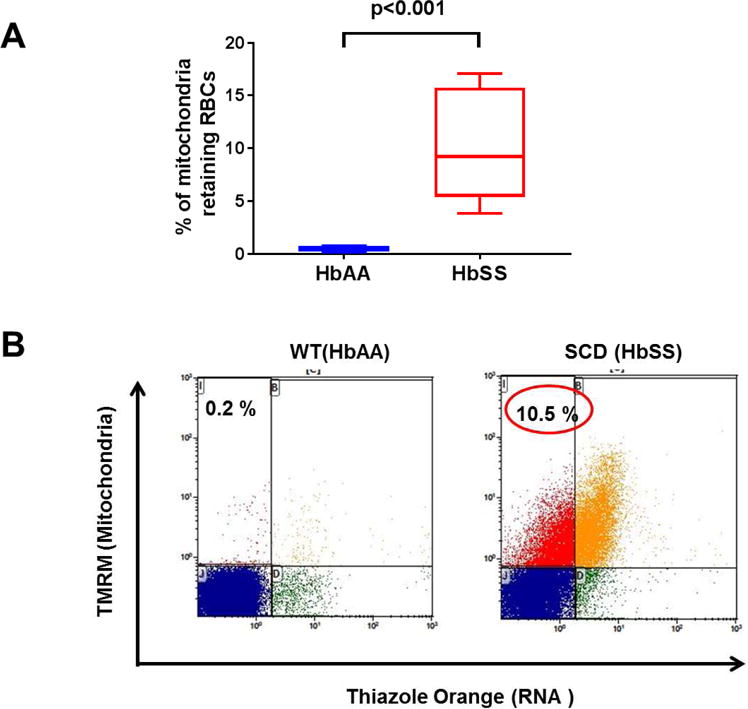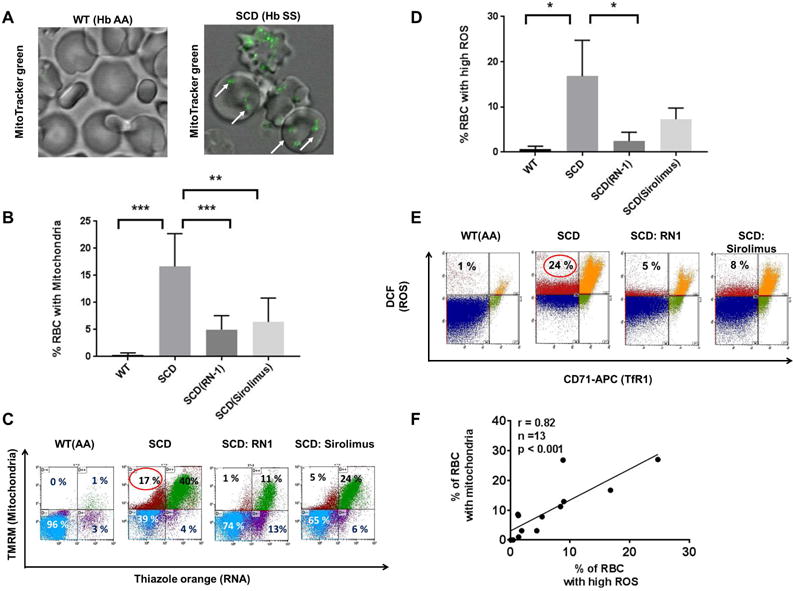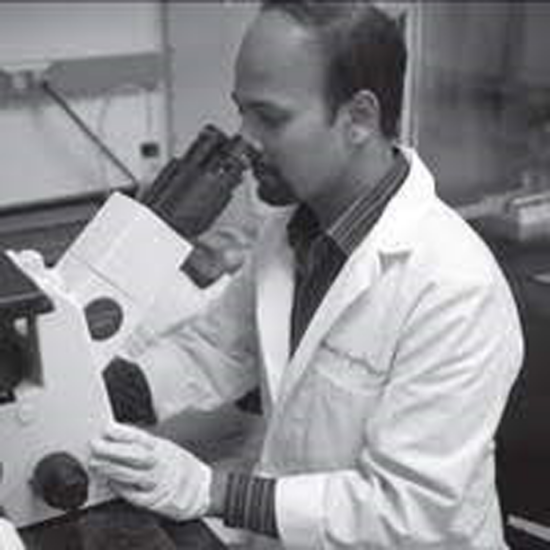Dr. Jagadeesh Ramasamy’s Lab
Targeting mitochondrial autophagy in prevention and treatment of pain and vascular inflammation
The main focus of the lab led by Jagadeesh Ramasamy, PhD, is to develop non-opioid novel molecular targets to reduce pain, suffering, and mortality attributed to sickle cell disease (SCD) by identifying upstream messengers of acute and chronic pain signaling. Mitochondrial retention in SCD red blood cells is now recognized to be a major contribution in SCD pathogenesis. However, the downstream molecular mechanisms related to pain and mitochondrial retention is not investigated.
Lab Highlights Heading link

Sickle cell disease (SCD), caused by a single point mutation of the β-globin gene, is the most lethal of all the genetic blood diseases. The effect of this simple change is catastrophic for those with the disease, many of whom face lifelong debilitating pain, multiple organ dysfunction, and a shorter life expectancy. Although the cause of SCD was identified as globin gene mutation many years ago, it is not known why the spectrum of pain and disease severity varies so widely among afflicted individuals. Our ongoing research studies will aid clinical trials in the assessment of pharmacological interventions to alleviate the many health consequences of SCD. In particular, our goal is to reduce the need for opioid drugs to prevent pain and improve vascular health.
These are some highlights of our studies:
Discovery of mitochondria in a high percentage of RBCs and immature reticulocytes
Our lab discovered mitochondria presence in a high percentage of RBCs and immature reticulocytes in SCD patients. Pharmacological inhibition of LSD1 and mTOR reduces mitochondrial retention and associated ROS levels in the red blood cells of sickle cell disease.
Mitochondrial retention in RBCs is now emerging as an upstream source for non-infectious inflammatory reactions in SCD patients and other systemic vascular inflammatory diseases such as systemic lupus erythematous.
Please see: Jagadeeswaran R, Vazquez BA, Thiruppathi M, Ganesh BB, Ibanez V, Cui S, Engel JD, Diamond AM, Molokie RE, DeSimone J, Lavelle D, Rivers A. Exp Hematol. 2017 Jun; 50:46-52. PMID: 28238805.
More Lab Highlights Heading link

Other lab highlights
- In another area of translational research, our lab is actively involved in developing novel therapeutic approaches to treat SCD patients. Currently, we are developing an HTS platform to identify the novel pain biomarkers in pediatric SCD patients.
- Our lab also is involved in determining the potential LSD1 inhibitors to induce gamma globulin expression in experimental models.
- Efforts in our lab are aimed at developing targeted drugs against mitochondrial autophagy pathway for pain caused by SCD. Our long-term goal is to improve the lives of those with SCD. We are working to identify novel drug targets against mitochondrial autophagy to reduce acute and chronic pain and decreasing opioid use during pain crises. Thereby vascular health and the lifespan can be improved by non-toxic epigenetic small molecules and therapeutic antibodies.
